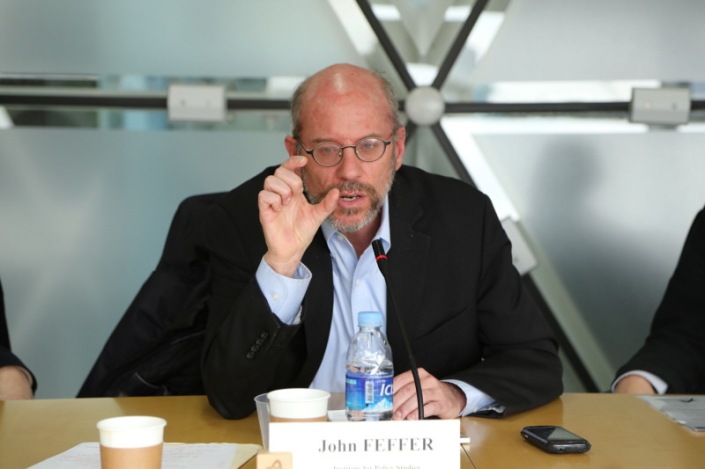Mois: août 2019
Nozomi Hayase: “Injustice to Assange displays the deep crisis of Western liberal democracy”

Dr. Nozomi Hayase. DR.
Mohsen Abdelmoumen: Your very interesting book to read WikiLeaks: The Global Fourth Estate relates the genesis of WikiLeaks. In your opinion, wasn’t WikiLeaks a revolutionary tool to defend the right to inform?
Nozomi Hayase: I would say WikiLeaks is a tool that defends the public’s right to know. The way you put it in your question, ‘publisher’s right to inform’ is derived from the First Amendment right. The US model of governance, namely a representative democracy, relies on the mechanism of checks and balances of power to maintain the integrity of the system. Within this framework, the press plays a crucial role because without the informed public, this system of accountability really won’t work. Lire la suite »
Nozomi Hayase : « L’injustice contre Assange illustre la crise profonde de la démocratie libérale occidentale »

Dr. Nozomi Hayase. DR.
English version here
Por traducir, haga clic derecho sobre el texto
Per tradurre, cliccate a destra sul testo
Um zu übersetzen, klicken Sie rechts auf den Text
Щелкните правой кнопкой мыши на тексте, чтобы перевести
Για να μεταφράσετε, κάντε δεξί κλικ στο κείμενο
Mohsen Abdelmoumen : Votre livre très intéressant à lire WikiLeaks: The Global Fourth Estate retrace la genèse de WikiLeaks. Selon vous, WikiLeaks n’a-t-il pas été un outil révolutionnaire pour défendre le droit d’informer ?
Nozomi Hayase : Je dirais que WikiLeaks est un outil qui défend le droit du public à savoir. La façon dont vous avez formulé votre question, « le droit d’informer de l’éditeur » découle du droit du Premier Amendement. Le modèle de gouvernance américain, à savoir une démocratie représentative, repose sur le mécanisme des freins et des contrepoids du pouvoir pour maintenir l’intégrité du système. Dans ce cadre, la presse joue un rôle crucial, car sans l’information du public, ce système de responsabilisation ne peut pas vraiment fonctionner. Lire la suite »
John Feffer: “The United States has constructed external enemies for much of its history”

John Feffer. DR.
Mohsen Abdelmoumen: You wrote the masterful book Crusade 2.0. How do you explain the need for the United States to have an enemy? Have not the consequences of the neocons theory, namely the clash of civilizations, been disastrous for the MENA region, with the destruction of Iraq and the destabilization of Libya, etc.?
John Feffer: Alas, the United States has constructed external enemies for much of its history. John Quincy Adams, in 1821, warned America not to go in « search of monsters » overseas. He had seen how Jefferson had used the Barbary pirates as a justification for the creation of a sizable American military and he was fearful that the young United States would waste its energies on foreign entanglements. But U.S. foreign policy has been largely structured around just such missions, particularly with the inception of America’s imperial project at the end of the 19th century. This established the United States as a hegemonic power. But it wasn’t until after World War II that America became a superpower. Lire la suite »
John Feffer : «Les États-Unis ont construit des ennemis extérieurs pendant une grande partie de leur histoire»

John Feffer. DR.
English version here
Por traducir, haga clic derecho sobre el texto
Per tradurre, cliccate a destra sul testo
Um zu übersetzen, klicken Sie rechts auf den Text
Щелкните правой кнопкой мыши на тексте, чтобы перевести
Για να μεταφράσετε, κάντε δεξί κλικ στο κείμενο
Mohsen Abdelmoumen : Vous avez écrit le livre magistral Crusade 2.0. Comment expliquez-vous le besoin des États-Unis d’avoir un ennemi ? Les conséquences de la théorie des néocons, à savoir le choc des civilisations, n’ont-elles pas été désastreuses pour la région MENA, avec la destruction de l’Irak et la déstabilisation de la Libye, etc. ?
John Feffer : Hélas, les États-Unis ont construit des ennemis extérieurs pendant une grande partie de leur histoire. John Quincy Adams, en 1821, a averti l’Amérique de ne pas partir à la « recherche de monstres » outre-mer. Il avait vu comment Jefferson s’était servi des pirates de Barbarie pour justifier la création d’une armée américaine importante et il craignait que les jeunes États-Unis ne gaspillent leur énergie en se livrant à des embrouilles à l’étranger. Mais la politique étrangère américaine s’est largement structurée autour de ces missions, en particulier depuis le début du projet impérial américain à la fin du XIXe siècle. Lire la suite »

Vous devez être connecté pour poster un commentaire.